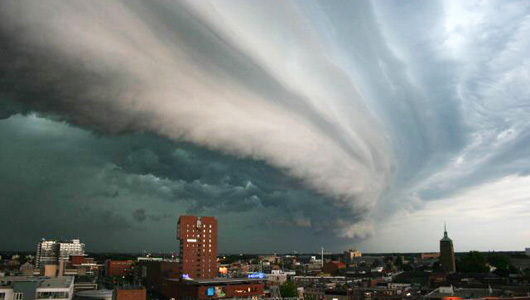None of us wants to hear an unending supply of bad news. It becomes too easy to steel yourself and believe that somebody else will fix the problem. Climate change, however, is such a significant problem to life as we know it on this planet that nobody should ignore the reality of its global impacts, even doubters. While no individual, company or country can single-handedly solve the problems associated with climate change, thy can make a positive contribution, either by spreading awareness of the problem and its causes, or by taking action steps to help reduce individual carbon dioxide emissions. The more awareness that is fostered about the real meaning of this problem, the closer we all get to making a collective number of changes — small and large — that will have a positive impact on all generations that follow. The following release comes from the University of East Anglia.

Climate Change will cause widespread global-scale loss of common plants and animals
More than half of common plants and one third of the animals could see a dramatic decline this century due to climate change – according to research from the University of East Anglia.
Research published today in the journal Nature Climate Change looked at 50,000 globally widespread and common species and found that more than one half of the plants and one third of the animals will lose more than half of their climatic range by 2080 if nothing is done to reduce the amount of global warming and slow it down.
This means that geographic ranges of common plants and animals will shrink globally and biodiversity will decline almost everywhere.
Plants, reptiles and particularly amphibians are expected to be at highest risk. Sub-Saharan Africa, Central America, Amazonia and Australia would lose the most species of plants and animals. And a major loss of plant species is projected for North Africa, Central Asia and South-eastern Europe.
But acting quickly to mitigate climate change could reduce losses by 60 per cent and buy an additional 40 years for species to adapt. This is because this mitigation would slow and then stop global temperatures from rising by more than two degrees Celsius relative to pre-industrial times (1765). Without this mitigation, global temperatures could rise by 4 degrees Celsius by 2100.
The study was led by Dr Rachel Warren from UEA’s school of Environmental Sciences and the Tyndall Centre for Climate Change Research. Collaborators include Dr.Jeremy VanDerWal at James Cook University in Australia and Dr Jeff Price, also at UEA’s school of Environmental Sciences and the Tyndall Centre. The research was funded by the Natural Environment Research Council (NERC).
Dr Warren said: “While there has been much research on the effect of climate change on rare and endangered species, little has been known about how an increase in global temperature will affect more common species.
“This broader issue of potential range loss in widespread species is a serious concern as even small declines in these species can significantly disrupt ecosystems.
“Our research predicts that climate change will greatly reduce the diversity of even very common species found in most parts of the world. This loss of global-scale biodiversity would significantly impoverish the biosphere and the ecosystem services it provides.
“We looked at the effect of rising global temperatures, but other symptoms of climate change such as extreme weather events, pests, and diseases mean that our estimates are probably conservative. Animals in particular may decline more as our predictions will be compounded by a loss of food from plants.
“There will also be a knock-on effect for humans because these species are important for things like water and air purification, flood control, nutrient cycling, and eco-tourism.
“The good news is that our research provides crucial new evidence of how swift action to reduce CO2 and other greenhouse gases can prevent the biodiversity loss by reducing the amount of global warming to 2 degrees Celsius rather than 4 degrees. This would also buy time – up to four decades – for plants and animals to adapt to the remaining 2 degrees of climate change.”
The research team quantified the benefits of acting now to mitigate climate change and found that up to 60 per cent of the projected climatic range loss for biodiversity can be avoided.
Dr Warren said: “Prompt and stringent action to reduce greenhouse gas emissions globally would reduce these biodiversity losses by 60 per cent if global emissions peak in 2016, or by 40 per cent if emissions peak in 2030, showing that early action is very beneficial. This will both reduce the amount of climate change and also slow climate change down, making it easier for species and humans to adapt.”
Source: AAAS EurekAlert
Photo: Climate storm John Kerstholt
[source: http://feeds.importantmedia.org/~r/IM-greenbuildingelements/~3/e-GeNKWgXZg/]

Leave a Reply
You must be logged in to post a comment.